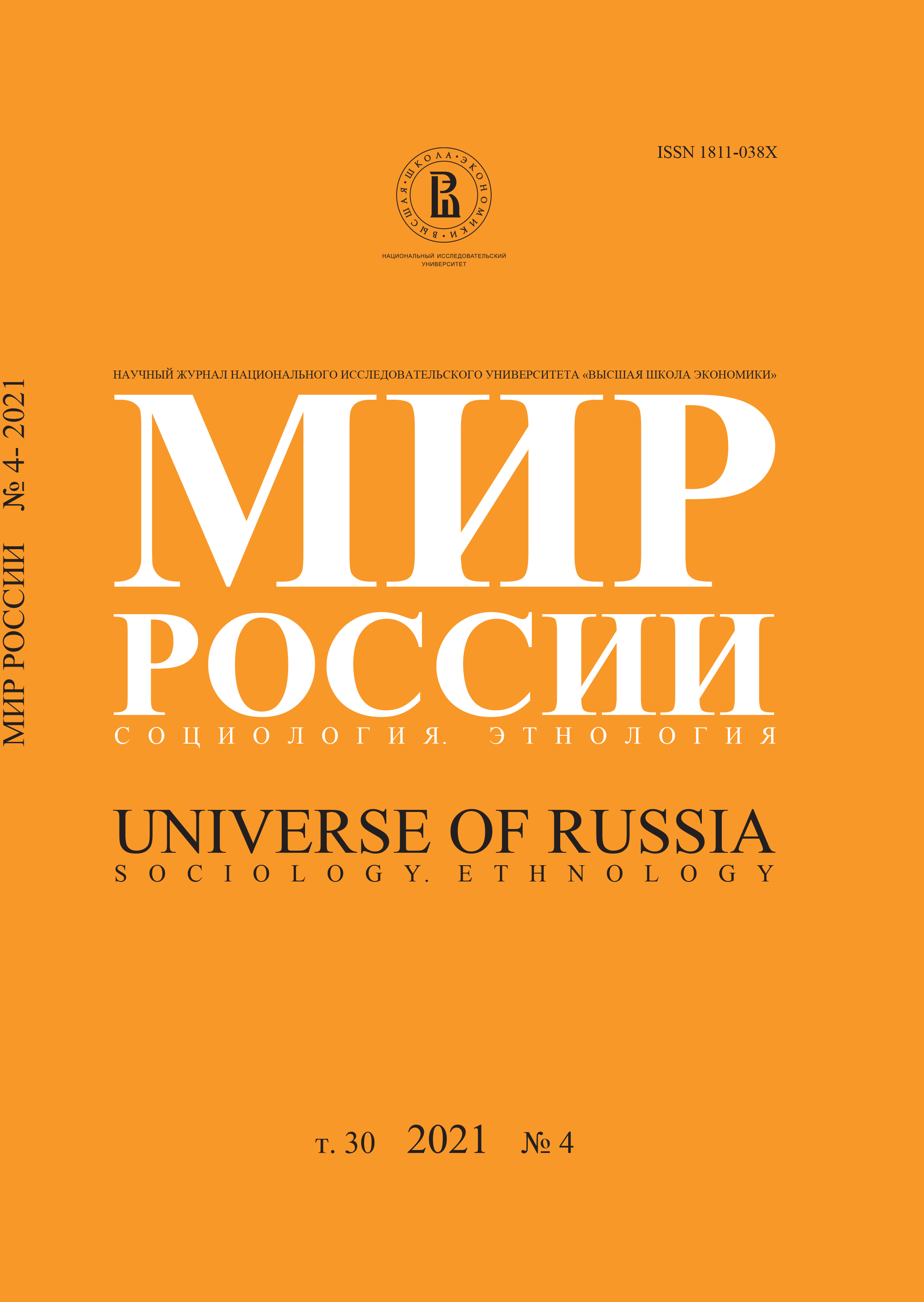Stakeholders of Quasi-Public Interactions in a Resource-Abundant Region: an Insiders’ Perspective
Abstract
This article describes the stakeholders and practices of political and economic interaction in Kemerovo region as a resource-abundant region, based on in-depth interviews and a formalized survey. The stakeholders include higher regional officials and top managers of resource-extraction companies. The study provides an insider’s perspective on a regional case, as the researchers themselves are deeply embedded in the social and economic realities of the Kemerovo region. This fact means that they were engaged in solving the problem of theorizing the commonness that is specific sociology. The solution this problem involves the use of a research strategy of grounded theory, which implies the choice of models and tools that correspond to the characteristics of the research object. The chosen research methodology made it possible to describe the practices of quasi-public interaction that have in Kuzbass, which are characterized by the following features. Representatives of regional authorities and resource companies position themselves as subjects acting in the interests of the entire population of the region. At the same time, they monopolize the functions of formulating and realizing social development goals declaring that only they have the exclusive information and opportunities are necessary for this. Within the framework of this approach the population is practically excluded from the number of active subjects of political, economic and social interaction. Representatives of regional authorities and resource companies jointly implement both economic and political and administrative functions at the informal level. The incumbents involve entrepreneurs the implementation of political and administrative functions, including financing the production of public goods, various kinds of social and infrastructure projects, etc. Entrepreneurs agree to do these actions, because they realize that it is impossible to conduct any serious business without direct support from the
authorities. All participants in political and economic interaction, i.e. political leaders, professional civil servants, owners and managers of resource companies behave not in accordance with their formal social roles, but as persons included in a closed vertical social network.






